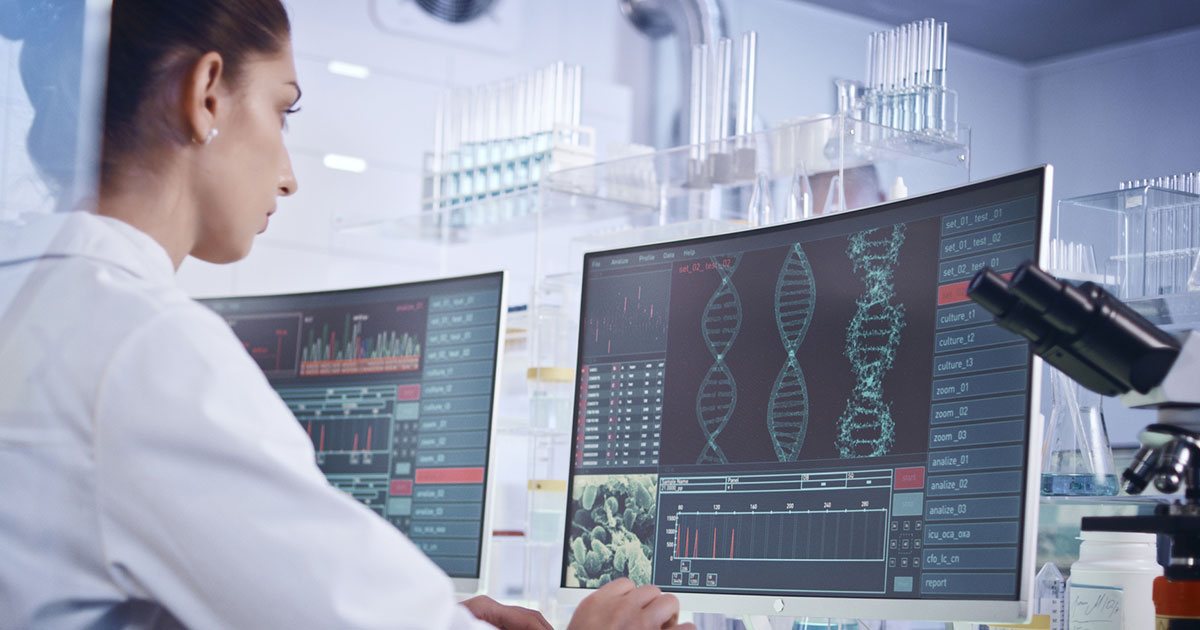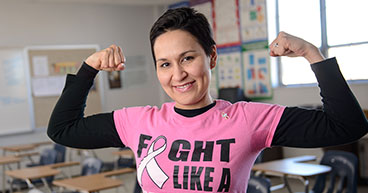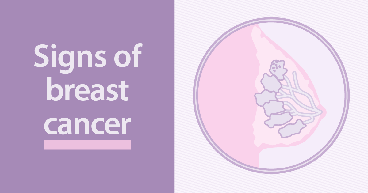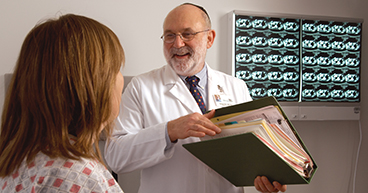
Breast cancer is the second-most common cancer diagnosis among women, after skin cancer. In fact, one in eight women— more than 285,000 in 2022--will be diagnosed with cancer in her lifetime, according to the American Society for Clinical Oncologists (ASCO). And while no one can predict who will get breast cancer and when, there are breast cancer risk factors for many women that are easy to assess, then address.
Some women are at greater risk of developing breast cancer because of an inherited genetic mutation. While all women have BRCA1 and BRCA2 genes, about one in every 500 women has a mutation in these genes. According to ASCO, if a woman’s mother or father has a BRCA1 or BRCA2 genetic mutation, she has a 50 percent chance of having the same mutation.
Questions about risk assessment
If you are interested in learning about your risk of developing breast cancer, speak with your doctor to learn about risk assessment, genetic counseling and genetic testing. Below are answers to frequently asked questions about these clinical tools.
What is risk assessment for breast cancer?
Four factors may impact a patient’s chance of developing breast cancer, according to the American College of Obstetricians and Gynecologists (ACOG):
- Reproductive risk, such as an older age at first birth or menopause
- Atypical hyperplasia or lobular carcinoma in situ detected in previous biopsies
- Exposure to ionizing radiation, often from radiation therapy from a previous cancer
- Family history of cancer
To understand their risk of developing breast cancer, patients should know their family history, especially whether family members—immediate or distant—had cancers of the breast, ovaries, colon, prostate or pancreas. Family relationships are often broken into three degrees:
First-degree: Fully biological parents, siblings and children
Second-degree: Aunts, uncles, grandparents, nieces and nephews and half-siblings
Third-degree: Great-grandparents, great-grandchildren, great-uncles, great-aunts and first cousins.
The National Cancer Institute (NCI) provides a Breast Cancer Risk Assessment tool that estimates a patient’s risk of developing invasive breast cancer within the next five years and up to 90 years of age.
As with other risk-assessment tools, NCI’s model uses a woman’s personal medical and reproductive history, in addition to any history of breast cancer among her mother, sisters and daughters, to estimate her “absolute breast cancer risk.” This is the patient’s chance of developing invasive breast cancer during a particular time period, according to NCI.
Concerned about your risk for breast cancer? Try our Risk Management Tool.
Why is risk assessment important?
Every person’s chance of developing breast cancer is different. Risk assessment may help patients and their health care providers discover whether they’re at average or increased risk. That knowledge may guide a thoughtful discussion about breast cancer surveillance, risk reduction and genetic testing, according to ACOG. Services that may be appropriate for patients at higher risk of developing breast cancer include:
- Genetic counseling
- Enhanced imaging, such as with MRI (magnetic resonance imaging)
- More frequent clinical breast exams
- Risk-reduction strategies, such as prophylactic surgery
Ethnicity and race may also play a role in risk assessment. For example, black women are more likely to die as a result of breast cancer than other ethnic and racial groups, according to the American Cancer Society (ACS). Specifically, black women are more likely to develop triple-negative breast cancer, according to a 2019 study in CANCER. Often aggressive, this type of breast cancer may return after initial treatment.
The U.S. Centers for Disease Control and Prevention (CDC) also notes that one in 40 Ashkenazi Jewish women has a BRCA gene mutation, potentially putting them at greater risk of developing breast and ovarian cancers at a young age. BRCA1 and BRCA2 are genes designed to help suppress tumors. A mutation in one of these genes prevents the genes from working as they normally would against a tumor.
What’s the chance that a patient has genetic a predisposition to developing breast cancer?
While a family history of breast cancer may raise a woman’s risk of developing the disease, it doesn’t mean she’s inherited a gene that dramatically impacts her risk, according to the ACS. That said, a family history that includes cancers of the breast, ovaries, pancreas and prostate means it’s more likely the patient carries an inherited gene.
Three variables may increase the risk of having an inherited gene that increases a patient’s risk:
- Cancer among a close relative, such as a mother or sister, which is of greater concern than cancer in a more distant relative, such as a great-grandmother or an aunt
- The number of family members who have been diagnosed with cancer
- The age a relative was diagnosed
How does genetic testing for breast cancer work?
A health care provider may recommend testing using a multigene panel, which looks for a variety of genes, including BRCA1 and BRCA2. The CDC recommends that the first family member to be diagnosed with breast cancer, ovarian cancer or another BRCA-related cancer, such as pancreatic cancer and prostate cancer, be the first in the family to undergo genetic testing.
Genetic counseling may be helpful when trying to understand the results of a genetic test and to decide on the appropriate next steps for patients and their families. A negative test result means that no gene mutation was found. A positive finding means the patient has a mutation that’s known to cause hereditary breast cancer and ovarian cancer. Ia It’s important to know that negative test result doesn’t mean there are no hereditary gene mutations, only that they don’t have one of the ones identified for testing. Also, a positive test result that finds a gene mutation does not mean a patient will get cancer.
What do men need to know about risk assessment for breast cancer?
While men with a BRCA gene are at greater risk of developing breast cancer, their risk is lower than it is for women, according to the ACS. Male breast cancer accounts for about 1 percent of all breast cancer diagnoses.
What questions should patients ask about genetic testing?
Genetic testing may help patients make informed decisions based on their risk of developing breast cancer. But preparing for that conversation with a health care provider may be stressful. It may help to prepare a list of questions in advance. The ACS suggests patients ask these five questions:
- What’s my risk of developing breast cancer?
- What are the warning signs I should watch for?
- Given my health history and my family’s health history, should I get genetic testing to learn more about the risk of developing breast cancer?
- What are the risks and benefits of genetic testing?
- What does a positive or negative test result mean for me and my family?
Additional questions are available on the ACS website.



